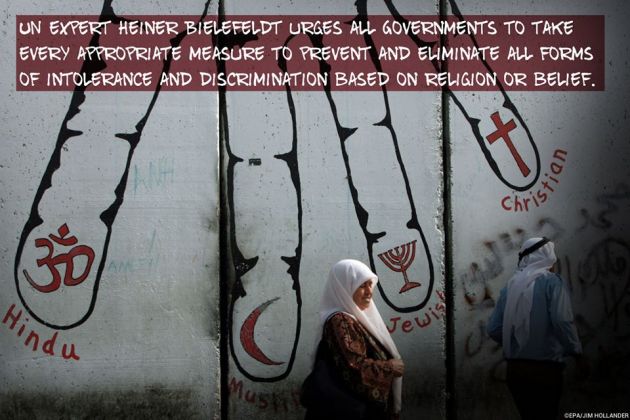Government restrictions on religion stay high across the world as terrorism declines: Report

Religion-related terrorism has been declining but government restrictions on religious beliefs remain at high levels around the world, says a new report from the Pew Research Center.
The report on religious restrictions was released Sept. 3, covering 198 countries and territories spanning nearly all the world's population, and is based on data from 2019.
The report says an incident that appeared to buck its trend pf decline in religion-related terrorism was the Islamist bombings in Sri Lanka on Easter Sunday 2019, that killed more than 250 people and injured 500 others at churches and hotels.
"Government restrictions, such as interference in worship, stayed at a record high for the study. The global median score on the Government Restrictions Index (GRI) remained at 2.9 in 2019, the highest level reached since the Center began tracking these trends in 2007," said the report.
In total, governments in 180 countries harassed religious groups in some way in 2019 – for example, by detaining individuals for practicing their faith – and 163 governments interfered in worship. Both are peaks for the study.
Christians followed by Muslims were harassed in more countries in 2019, the most of any religious groups, followed by Jews.
Government restrictions tend to be in two categories – harassment against religious groups and government interference in worship.
"More countries had at least one reported incident of government harassment or interference in worship in 2019 than in any other year since the study began in 2007," it said.
The study points to a yearly increase in the number of countries where Christians are experiencing harassment.
In 2007 there were 79 countries where Christians experienced government harassment. In 2019 that had risen to 128.
In 2019 – the most recent year for which data is available, covering a period before the disruptions accompanying the coronavirus pandemic – 43 countries (22 percent of all those included in the study) had "high" or "very high" levels of social hostilities.
That is down from 53 countries (27 percent) in 2018, and from a peak of 65 countries (33 percent) in 2012.
Pew said the figures have fluctuated since the study began in 2007, but the number of countries with at least "high" levels of social hostilities related to religion is now the lowest since 2009.
Among the world's 25 most populous countries, Egypt, India, Pakistan, Nigeria and Russia had the highest levels of restrictions on religion overallwhen considering both government restrictions and social hostilities.
Although residents in the most populous countries are not equally affected by religious restrictions, the scores are worth noting given that three-quarters of the world's population lives there.
Within this group, China, Egypt, Russia, Iran and Indonesia had the highest levels of government restrictions, while India, Nigeria, Pakistan, Bangladesh and Egypt had the highest levels of social hostilities.
For the first time, Pew included a measure assessing governments' online religious restrictions.
"In total, 28 countries and territories (14 percent of all 198 in the study) had some type of online governmental restriction in 2019 that was related to religion.
Most were in either the Asia-Pacific region (15 countries) or in the Middle East-North Africa region (10 countries)," the study found.